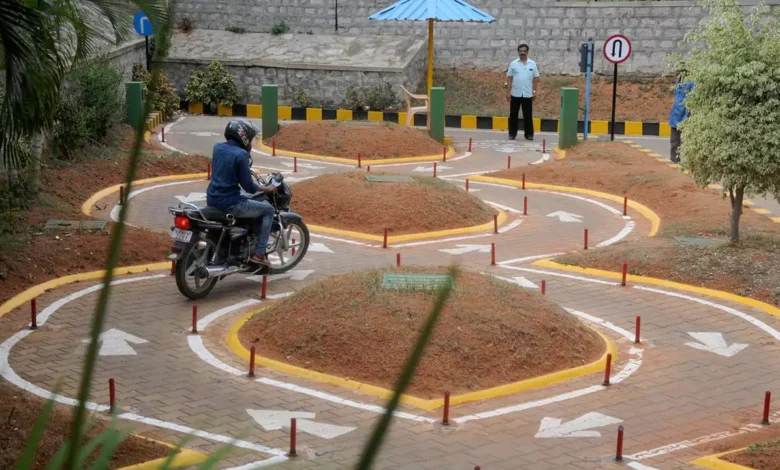Dear Indian Government, We Need a Centralised RTO System

Regional transport offices (RTOs) oversee India’s automobile registration system at the state and district levels. Each RTO issues car number plates that are specific to its jurisdiction, resulting in a decentralised system with different registration and enforcement laws between states. However, this system has its flaws and complexities, particularly as India’s automobile population rises and more individuals commute or relocate across state lines. A national-level centralised number plate and vehicle registration system could address these challenges while also providing various benefits in terms of efficiency, security, law enforcement, and convenience to vehicle owners.
Uniformity Across the Country
Individual states oversee India’s existing automobile registration system, resulting in variances in regulations and processes between states. Number plates, for example, vary in format, appearance, and style depending on the state, and vehicle-related legislation are frequently enforced differently. This lack of standardisation complicates things for both car owners and law enforcement organisations, especially when vehicles traverse state lines.
Centralising the registration and number plate system will ensure uniformity throughout the country. A standardised number plate type, design, and system would help law enforcement agencies identify automobiles more quickly and correctly. It would also simplify processes such as vehicle monitoring, tax collecting, and road safety enforcement because the same laws would apply to all vehicles, regardless of where they were registered. This might greatly minimise administrative uncertainty and eliminate geographical disparities that currently afflict the system.
Ease of Transfer and Movement
India is a big country, and interstate travel and relocation are becoming increasingly prevalent, particularly in cities. When vehicle owners relocate to a new state under the existing decentralised system, they must go through a lengthy process. When a car is registered in one state and the owner relocates to another, they must re-register the vehicle in the new state, pay road tax, and go through a series of bureaucratic procedures that can take months to complete. This process is not only time-consuming, but also perplexing, as each state has its own unique standards.
A centralised RTO system would eliminate the requirement for re-registration when a vehicle transfers from one state to another. Once a car is registered at the national level, it will be valid throughout the country, making the procedure easier for vehicle owners. They would no longer have to deal with additional paperwork or pay extra taxes when travelling between states. This would be especially useful for persons with transferable occupations, frequent travellers, or those who move for career or personal reasons.
Enhanced Law Enforcement and Security
One of the most significant benefits of centralising the number plate and registration system would be increased law enforcement and national security. A centralised database of all registered vehicles in the country would greatly improve law enforcement’s ability to track and identify automobiles. Currently, when a vehicle involved in a crime or traffic infraction crosses state lines, the lack of interstate data exchange frequently impedes investigation and enforcement efforts.
A centralised system would allow law enforcement organisations across the country to obtain real-time information about each vehicle’s registration, ownership history, and other relevant data. This would allow police and other agencies to easily trace down stolen automobiles, identify vehicles implicated in crimes, and ensure compliance with road safety standards. A national-level database would also allow for improved coordination among state law enforcement agencies, lowering the likelihood of vehicles slipping through the cracks when they transit from one jurisdiction to another.
Furthermore, centralised registration would help to reduce concerns such as fraudulent or duplicate registrations. Currently, there are incidents where vehicles are fraudulently registered in various states, or where stolen vehicles are given bogus license plates. A centralised system with a nationwide database would make such fraudulent operations much more difficult to carry out, as the system would be transparent and trackable throughout the country.
Reduction in Corruption and Administrative Inefficiencies
The decentralised design of RTOs in India is frequently criticised for encouraging corruption and inefficiency. In many states, the process of car registration, number plate issue, and other RTO-related activities is hampered by bureaucratic delays, with widespread complaints of bribery and other malpractices. Furthermore, the lack of a single system results in fragmented data management, which causes delays, inaccuracies, and unnecessary paperwork.
Centralising the RTO system would help to decrease these inefficiencies. A central entity in charge of vehicle registration and number plate issuance could improve operations through digitisation and automation. This would considerably reduce the need for middlemen and the opportunity for corruption. Both vehicle owners and administrators would gain from increasing the overall transparency and efficiency of the system. Implementing technology-driven solutions such as online registration, automatic number plate issuance, and real-time vehicle tracking would result in a more efficient, speedy, and less corrupt system.
Efficient Tax Collection
Under the existing system, individual states collect road taxes, which are frequently assessed at various rates based on the jurisdiction. This discrepancy can lead to circumstances in which car owners register their vehicles in states with cheaper taxes, even if they do not live there permanently, resulting in a revenue loss for other states. Furthermore, the double taxation issue arises when a car owner relocates to another state and is compelled to pay road tax again, despite having paid it in their previous place of registration.
A centralised registration system could improve tax collection and close loopholes. Vehicle owners would pay a single, standardised road tax that would be applied across the country, with the proceeds divided among states depending on vehicle usage and infrastructure needs. This will increase transparency and fairness in tax collection while guaranteeing that states do not lose income owing to fake registrations or tax evasion.
Better Integration with Technology
A centralised system would also improve integration with new technologies such as GPS-based tracking, Automated Number Plate Recognition (ANPR) systems, and linked vehicle technologies. In a fast digitising world, car registration and monitoring must keep up with technological advances. With a central database, it would be easy to integrate real-time vehicle monitoring, monitor traffic flow, and improve road safety through data analytics.
For example, ANPR systems might be utilised more effectively on highways and at toll booths to automatically identify vehicles based on their license plates, eliminating the need for manual checks. This would not only improve toll collection but also help to enforce traffic regulations more effectively, particularly in cases of speeding or hit-and-run accidents.
Centralising the number plate and RTO systems in India would improve efficiency, security, law enforcement, and convenience for vehicle owners. A national registration system would standardise processes, minimise administrative hassles, and improve interstate coordination. Most importantly, it would allow law enforcement authorities to track vehicles more effectively, reducing fraud, corruption, and inefficiencies. With the growth of interstate travel, relocations, and technology-driven solutions, the current fragmented structure is becoming increasingly obsolete. By centralising vehicle registration, India may achieve a more efficient, safe, and user-friendly system that benefits both citizens and the government.
